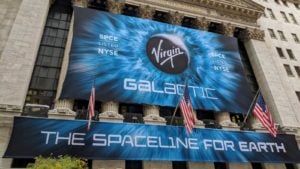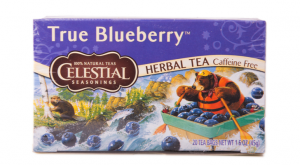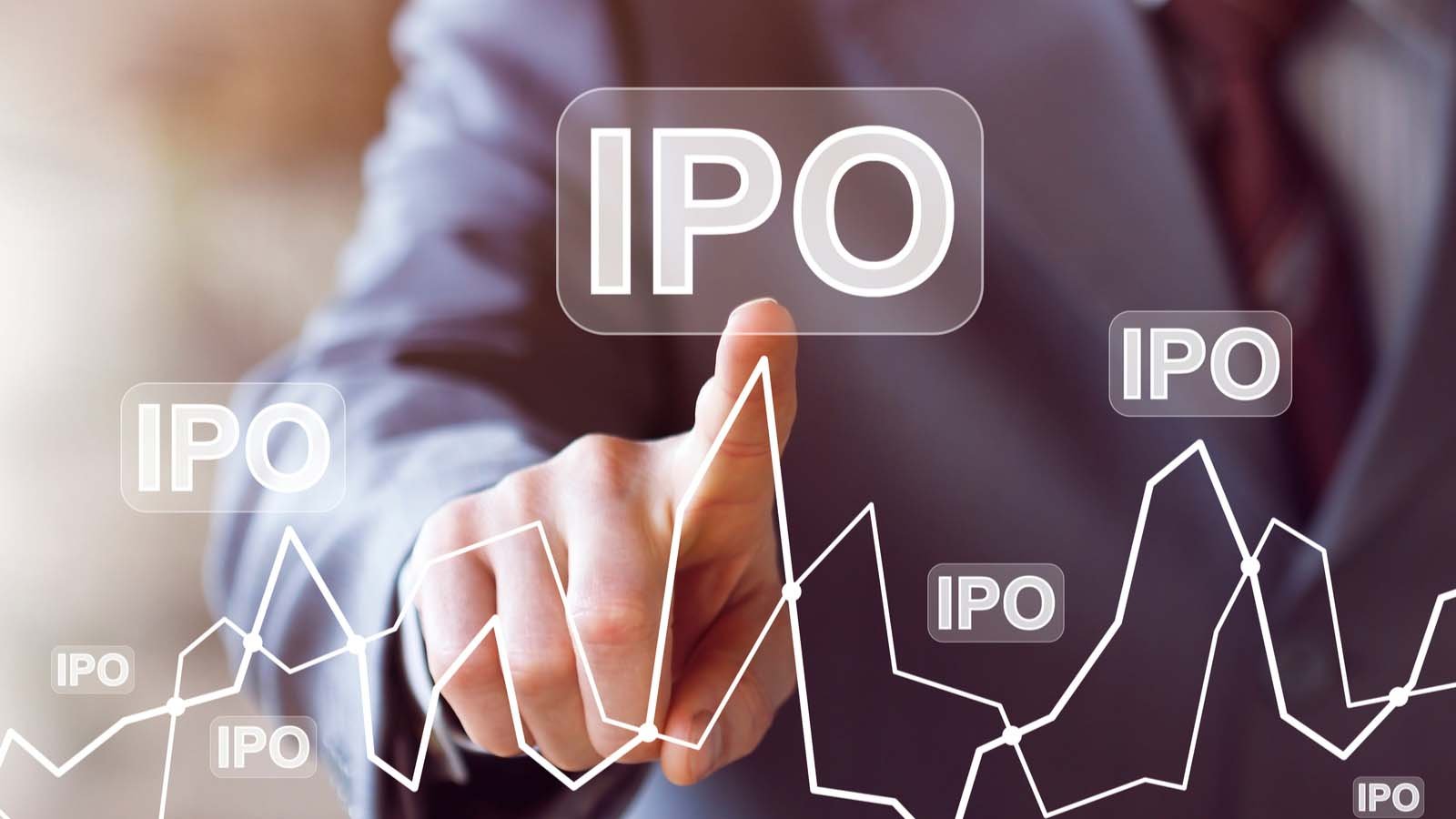Not many investors are familiar with special purpose acquisition companies (SPACs), a special breed of IPO stocks that enable well-connected sponsors to raise hundreds of millions of dollars from the public markets.
Often referred to as blank-check companies or blind pools, the sponsors have 24 months from the day the IPO funds are raised to acquire an operating business. That business is then combined with the SPAC through a reverse merger, turning the private company into a public one.
SPACs first came into being in the 1980s, used by penny-stock promoters, to make millions off unsuspecting investors. As a result, the federal government introduced the Penny Stock Reform Act of 1990, which took steps to stop these fraudulent activities.
Later in the decade, financier David Nussbaum reintroduced SPACs, focusing on legitimizing this form of IPO stocks through the use of specific requirements such as putting the funds raised in escrow and putting a time limit on the amount of time to make a qualifying acquisition.
The other day I wrote about “10 Ways to Diversify Your Portfolio at This Time of Crisis.” Although I mentioned several different options to help lessen the blow to your investment portfolio at this challenging time, one option I didn’t bring up was SPACs.
Back in 2007, SPACs gained popularity with hedge funds as a way to protect their capital against downside threats, while generating a good yield and providing potential upside should an acquisition get completed within the 24 months.
In 2019, there were 59 SPAC IPOs that collectively raised $13.6 billion. As the bull run looks to be coming to an end, I suspect the SPAC hedge is going to come back into fashion.
If so, here are 10 SPAC IPO stocks to buy now. Five have recently completed or found a target company, while five have yet to find an acquisition.
IPO Stocks: Virgin Galactic (SPCE)

As far as SPACs go, the merger between Social Capital Hedosophia, which raised $600 million in September 2017 for its first of three SPACs, and Richard Branson’s space travel company, Virgin Galactic (NYSE:SPCE), is as a big deal.
The merger was first announced in July 2019. The combination created a company with an enterprise value of $1.5 billion. Branson’s Virgin Group owns 58.7% of the business with Social Capital’s shareholders owning the rest.
Recently, I suggested that Virgin Galactic could be the next Tesla (NASDAQ:TSLA). Although it plans to develop a large space tourism business, the commercial applications of space flight are tremendous. The company expects its first space flight to happen later this year.
With 8,000 people signed up ready to spend $250,000 to go into space, and many more to come out of the woodwork once a successful flight is in the books, the future revenue potential is tremendous.
However, this is not a stock for those who can’t see the long-term picture; risks will remain high for several years.
Act II Global Acquisition / Merisant / Whole Earth (ACTT)

On Dec. 20, 2019, Act II Global Acquisition Corp. (NASDAQ:ACTT) announced that it was combining with Merisant Company and MAFCO Worldwide LLC. Both are currently owned by MacAndrews & Forbes, the holding company of billionaire Ronald O. Perelman.
Merisant specializes in zero and low-calorie sugar substitutes, while MAFCO is the world’s leading maker of natural licorice products. The two businesses and Act II will operate under the name Whole Earth Brands, which includes the Whole Earth brand of sweeteners.
The chairman of Whole Earth Brands is Irwin Simon, the current CEO of Aphria (NYSE:APHA), a Canadian cannabis company. Before Aphria, Simon co-founded and was CEO of Hain Celestial Group (NASDAQ:HAIN), one of the world’s largest natural and organic foods company.
Once trading on Nasdaq, Whole Earth Brands will have an enterprise value of $575 million, 8.1 times 2020 pro forma EBITDA of $71 million. Simon and CEO Albert Manzone plan to use the company’s stable free cash flow to grow its business organically and through acquisitions.
Simon’s involvement makes this an exciting company to watch.
Repay Holdings (RPAY)

Repay Holdings (NASDAQ:RPAY) announced in January 2019 that it was merging with Thunder Bridge Acquisition Ltd., a SPAC that raised $225 million ($25 million higher than initially proposed) in June 2018.
Repay operates a proprietary, integrated payment technology platform that reduces improves the customer experience while simplifying the process for merchants. The management team, including co-founder and CEO, John Morris, stayed on to run the company. In 2018, Repay processed approximately $7 billion of payment volume for personal loans, car loans, and receivables management.
Thunder Bridge paid $581 million for Repay. It is led by Gary Simanson, who previously founded Endeavor Capital Management, a New York-based boutique private equity firm. In August of last year, Simanson raised $300 million for Thunder Bridge Acquisition II Ltd. (NASDAQ:THBR), a SPAC geared to finding another fintech acquisition.
Diamond Eagle Acquisition / DraftKings / SBTech (DEAC)

In late December, Diamond Eagle Acquisition Corp. (NASDAQ:DEAC) announced it would combine with DraftKings and SBTech, to form a $3.3 billion vertically integrated sports betting and online gaming company.
Once the combination is complete sometime in the first half of 2020, it will operate as DraftKings, and trade under a new stock symbol. The three-way merger comes more than two years after DraftKings and FanDuel canceled their merger over concerns from the Federal Trade Commission.
For those needing a program to tell who’s who, Diamond Eagle Acquisition is the fifth SPAC for Hollywood executives Harry Sloan and Jeff Sagansky. This particular version raised $400 million in May 2019. Since 2011, the five SPACs have raised a total of $1.7 billion.
If anyone can make this work, it’s these two guys.
If you bet on sports, you’ve probably heard DraftKings. I’ve yet to see anything come up due to the coronavirus, but I would guess it might postpone when the deal gets done. DraftKings just announced their annual results — it generated $323 million in sales in 2019, 43% higher than a year earlier — and while they were good, if there aren’t any professional sports teams playing, there wouldn’t be anything to bet on, severely reducing short-term revenues.
As for SBTech, it provides its clients with betting and gaming solutions, which is why this unusual three-way combination makes sense.
Like all SPAC acquisitions, Diamond Eagle’s shareholders have to vote in favor of the transaction for it to go ahead. With the coronavirus beginning to take a toll on U.S. sporting events, it’s suddenly not a sure thing.
Leisure Acquisition / Gateway Casinos & Entertainment (LACQ)

Also in the world of betting, Leisure Acquisition Corp. (NASDAQ:LACQ) announced on December 27, 2019, that it would combine with Gateway Casinos & Entertainment, a Canadian casino operation with 25 gaming and entertainment destinations, 12,800 slot machines, 365 table games, and 72 food and beverage outlets.
Shareholders of the SPAC will receive one share of Gateway on a one-to-one basis. Any outstanding warrants to purchase shares of Leisure Acquisition will be converted to warrants to purchase Gateway stock at $11.50 a share. Gateway will be listed on the NYSE and trade under the symbol GTWY.
Also, HG Vora Capital Management has agreed to buy 3 million units of Gateway for $10 per unit in a private placement. The cash from the private placement along with the money from Leisure Acquisition’s trust account and any excess cash on both companies’ balance sheets will go to pay down Gateway’s $154 million in debt.
In 2020, Gateway is expected to generate adjusted EBITDA of $149 million on $659 million in revenue. That puts Gateway’s enterprise value at 7.5x 2020 adjusted EBITDA.
Long-time gaming executive Marc Falcone will take the reins as its chief executive. Current Gateway CEO, Tony Santo, will retire.
Flying Eagle Acquisition (FEAC)

Harry Sloan and Jeff Sagansky have done it again.
On March 5, the duo sold 60 million units of Flying Acquisition Corp. (NASDAQ:FEACU) at $10 per unit. Five days later, the underwriters exercised their 15% over-allotment and bought another 9 million units at $10 per unit. In addition to one share of Class A common stock (symbol FEACon NASDAQ), investors got one-fourth of one warrant, with each warrant entitling the investor to buy another share for $11.50. The shares began trading on March 6.
The sixth SPAC from the duo, it raised gross proceeds of $690 million. The pair aren’t limiting their search to one particular industry. The net funds raised, after subtracting for $800,000 in offering expenses and initial working capital of $450,000 will be kept in a trust account bearing interest at 1.5% annually.
If an acquisition isn’t found within 24 months, the funds in the trust account would be returned to investors.
The chances are excellent; they’ll figure something out.
Acamar Partners Acquisition (ACAM)

Acamar Partners Acquisition Corp. (NASDAQ:ACAMU) sold 30 million units at $10 per unit on February 22, 2019. The units consist of one Class A common stock (symbol ACAM on NASDAQ) one-third of a warrant (symbol ACAMW on NASDAQ) with each warrant entitling the investor to buy another share for $11.50.
The management team includes Chairman Juan Carlos Torres, the Executive Chairman of Dufry (OTCMKTS:DUFRY), the world’s largest travel retailer, and Luis Solorzano, who has 19 years of private equity experience with Advent International and is expected to step into the role of CEO.
The target company will operate in the consumer and retail sectors. Possible areas of interest include travel retail, food and beverage, luxury goods, fashion, lifestyle and leisure products and services, and consumer branded products.
Given both men’s backgrounds, it makes sense that they’re going after consumer-facing businesses. More than one year into the 24-month acquisition requirement, the coronavirus might provide them with a few more opportunities in the coming months.
Conyers Park II Acquisition (CPAA)

On July 17, 2019, the Conyers Park II Acquisition Corp. (NASDAQ:CPAAU) sold 40 million units at $10 per unit. In addition, underwriters exercised part of their over-allotment, buying an additional five million units at $10 per unit, raising gross proceeds of $450 million.
Each unit included one Class A common share (symbol CPAA on NASDAQ) and one-fourth of one warrant with each warrant (symbol CPAAW on NASDAQ), entitling the investor to buy another share for $11.50.
I think by now, you’re starting to get a general idea of how SPACs are structured. Mainly, you buy units at $10, get one common share, and a fraction of a single warrant to buy an additional share at $11.50. The only thing that generally changes is the fraction.
Like a lot of SPACs, Conyers Park is sponsored by Centreview Capital, a private equity firm that specializes in consumer and technology companies. In July 2016, Centreview launched Conyers Park Acquisition Corp., raising gross proceeds of $402.5 million. Less than a year later, it combined with Atkins Nutritionals Inc., renaming the business Simply Good Foods (NASDAQ:SMPL).
While it hasn’t identified a specific area to invest, it intends to focus on the consumer sector.
Haymaker Acquisition II (HYAC)

One of the critical ingredients for SPACs looking to raise a lot of money is the people involved. You wouldn’t give a plug nickel to someone with little experience. However, if Steven Heyer, a former CEO of Starwood Hotels & Resorts, were involved, you’d likely consider investing.
Well, Heyer is the CEO and Executive Chairman of Haymaker Acquisition Corp. (NASDAQ:HYACU), which raised $400 million in gross proceeds last June, including the exercise of a $50 million over-allotment from underwriters.
Each unit included one Class A common share (symbol HYAC on NASDAQ) and one-third of one warrant with each warrant (symbol HYACW on NASDAQ), entitling the investor to buy another share for $11.50.
Like several of these SPACs, Heyer and company are focusing on companies operating in consumer-related industries. It’s open to a provider of products, services, or both. The ideal target has an enterprise value of $750 million or more, is growing, and has an asset-light business model.
Heyer previously headed up Haymaker Acquisition Corp., which raised $330 million in October 2017, combining with OneSpaWorld Holdings (NASDAQ:OSW) in March 2019. Unfortunately, OSW specializes in providing health and wellness services aboard cruise ships. Its stock’s lost 60% of its value in the past month.
Extreme value investors might want to take a sniff around OSW stock.
Oaktree Acquisition (OACU)

In July 2019, Oaktree Acquisition Corp. (NYSE:OACU) raised $201.25 million, selling 20.125 million units at $10 a share. That includes the exercise of the 15% over-allotment by the underwriters.
Each unit included one Class A common share (symbol OAC on NASDAQ) and one-third of one warrant with each warrant (symbol OACWS on NASDAQ), entitling the investor to buy another share for $11.50.
If you own shares in Brookfield Asset Management (NYSE:BAM), you’re probably familiar with Oaktree Capital Management (NYSE:OAK.A, NYSE:OAK.B), the SPACs sponsor. Oaktree Capital is an investor of distressed debt that was co-founded by Howard Marks; it is now majority-owned by the Canadian alternative asset manager.
While its mandate is wide open, it will focus on a business combination in the industrial and consumer sectors, where it feels it can bring its years of experience to the table.
With Brookfield involved, you can be sure a combination will get done by July 2021.
Will Ashworth has written about investments full-time since 2008. Publications where he’s appeared include InvestorPlace, The Motley Fool Canada, Investopedia, Kiplinger, and several others in both the U.S. and Canada. He particularly enjoys creating model portfolios that stand the test of time. He lives in Halifax, Nova Scotia. At the time of this writing Will Ashworth did not hold a position in any of the aforementioned securities.
